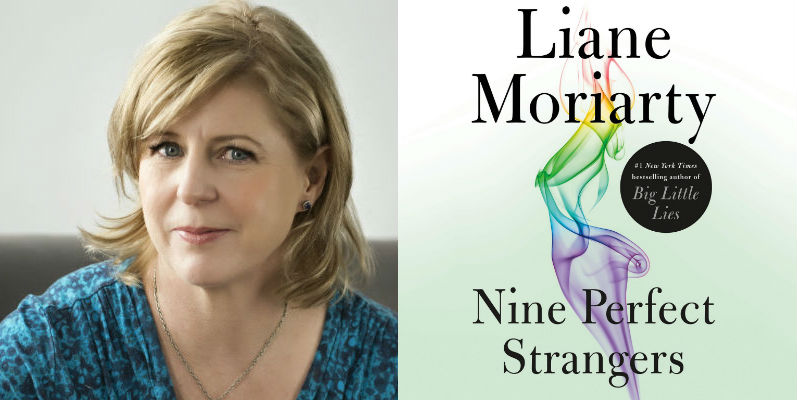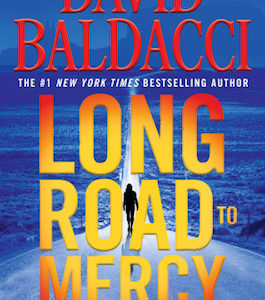To a certain segment of readers, Liane Moriarty has long been a household name, publishing a string of novels that combine suspense, cutting satire, and an emotional intensity that keeps the pages turning and shines a light on some of the more finely chiseled pockets of contemporary society. With last year’s smash HBO series based on her sixth novel, Big Little Lies, Moriarty has entered the pop culture, with all the attendant swell in readership you might expect and a mad dash to adapt her many other works. Nine Perfect Strangers—her first release since the breakthrough—reaches the U.S. this month, and Moriarty’s readers new and old will be sure to appreciate this latest twist, a new play on the traditional mystery. The novel has a large cast and a multitude of voices, but the emotional heart is Frances Welty, a formerly bestselling romance novelist on a cold spell. Facing the critics’ wrath, disloyal publishers, and a rapidly declining readership, not to mention personal issues galore, Frances decides to head to a remote health resort that promises pampering and self-improvement. The resort is a perfect modern-day stand-in for the country manor where a band of strangers has been brought together by a mysterious force—here the guru at the center of “Tranquilum House.” Moriarty is at her sharpest in this mystery, which will keep you bewildered, amused, and driven to read every last page. Moriarty was kind enough to answer a few questions about her newest work.
CrimeReads: There’s a strong vein of Agatha Christie running through Nine Perfect Strangers—people from all walks converging in a remote location, a mystery about why each is there, a charismatic leader at the helm. What is it about that kind of story that seems to have such a perpetual appeal?
Liane Moriarty: The remote location is useful because your characters can’t go running next door for help. Secrets always drive any story and a charismatic leader can get away with taking the plot in crazy and unexpected directions.
CR: Is the wellness center the 21st century response to the English country house—the perfect spot for a mystery?
LM: I think any kind of self-contained environment is perfect for a story. I’d originally thought about setting this book in one of those exclusive tropical island resorts where there are only a limited number of guests. I still might write that one day. I enjoy stories about sieges/hostage situations. I loved Bel Canto by Ann Patchett. I think Jodi Picoult’s newest book might feature a group of hostages.
CR: Your protagonist here is a formerly successful romance novelist, now hitting a rough patch in her career. Obviously you’ve enjoyed a tremendous amount of success but was it fun to play around with some of those authorial anxieties, or did it just force you to visit a dark place of literary torment? Somewhere in between?
LM: I am very aware that my time in the sun can’t last forever, and so I guess this may have been a way of subconsciously preparing myself for potentially dark times ahead. Like Frances, I just want to keep writing—it’s my dream job and it is awful to think of losing it.
CR: With the success of the Big Little Lies show on HBO, do you feel any pressure to write a certain kind of story, or did the show bring out any elements in your own work that you may not have recognized before, something you want to explore more of in the future?
LM: I made a deliberate decision to never write a book with the idea of a potential film adaptation in mind. My books often feature so much of my character’s inner thoughts and I never want to start writing books that sound like draft screenplays rather than novels.
CR: You always manage to weave a thread of humor into your books, even when the subject matter is dark and serious, which gives the stories such a human feel. Is it important to you to bring that perspective to your work?
LM: Yes, I think humour is important. The ability to laugh at ourselves and the situations in which we find ourselves is what makes us human.
CR: What was the research like for your latest book? Did you go undercover in the wellness center circuit? Do some soul searching of your own?
LM: I didn’t quite go on the circuit but I did go to a particularly lovely health resort where I must admit I did not suffer all that much for my art, although I am proud to say that I did give up coffee. This enabled me to accurately describe that drilling sensation at the centre of your forehead when your body craves caffeine. I also got up very early for many days in a row which made me feel morally superior, just like an insufferable morning person. On the way home I searched my soul to see if all those caffeine-free early mornings had transformed me, but then I stopped at the first café and got myself a double-shot flat white and I decided I was still me.
CR: For readers who are drawn to the idea of a health resort but are worried about falling under the sway of a charismatic and potentially dangerous guru, do you have any guidance on signs to look out for—when you should stop doing the self-improvement work and consider fleeing?
LM: I think your own instincts will tell you when it’s time to run. I have a friend who never goes into any situation eg. Backyard barbeque—without checking out a potential escape route in case of a zombie apocalypse. So perhaps that’s the key: plan your escape in advance.

















